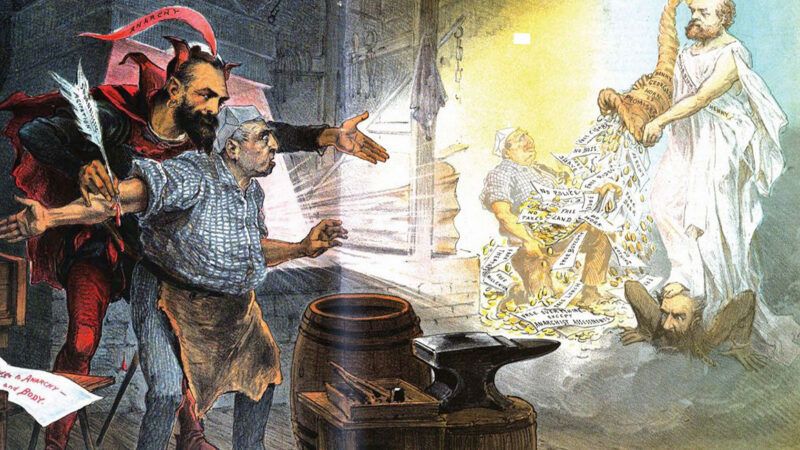Review: Henry George's Many Children
The 19th century reformer's influence on 20th century progressives, conservatives, and libertarians

Henry George, a 19th century reformer who famously favored an end to all taxes except a levy on land, believed his system would allow us to "approach" the "abolition of government" as a coercive force. He also wrote that his single tax could fund various public services, transforming the state into "a great co-operative society." Depending on which way you tilt your head, he can sound like he's either almost an anarchist or almost a social democrat.
In Land and Liberty, the Georgetown University historian Christopher William England shows that both sides of George's thinking bore fruit after his death.
In the early 20th century, George's followers found homes in a host of progressive reform movements and progressive-run governments. But other followers—sometimes the same followers—helped create contemporary libertarianism. (Some even had a hand in contemporary conservatism: He kept it low-key, but National Review founder Bill Buckley was a George fan.) By the time the New Deal arrived, Georgists sometimes found themselves lining up on opposite sides of the era's debates.
Perhaps because he is so hard to classify, George is often misremembered as a momentarily popular radical of the Gilded Age, his influence on later movements forgotten. England restores him to his place in political history, both in the U.S. and abroad. (George's international fans stretched from Cuba's José Martí to China's Sun Yat-sen—figures later honored in name but not in spirit by Fidel Castro and Mao Zedong.) And while England mostly traces George's influence on modern liberalism, he does not ignore Georgism's libertarian current. As he notes, even progressive-minded Georgists often clashed with actual Progressives: While the "dominant strands of Progressivism are now seen as opposed to individualism," most Georgists "were classically liberal, individualistic, and even libertarian on questions like vice enforcement and regulation."


Show Comments (11)